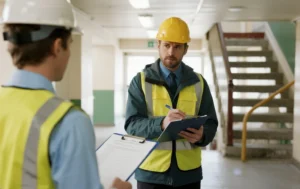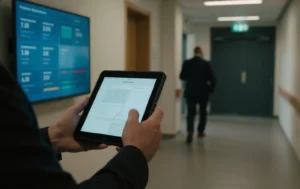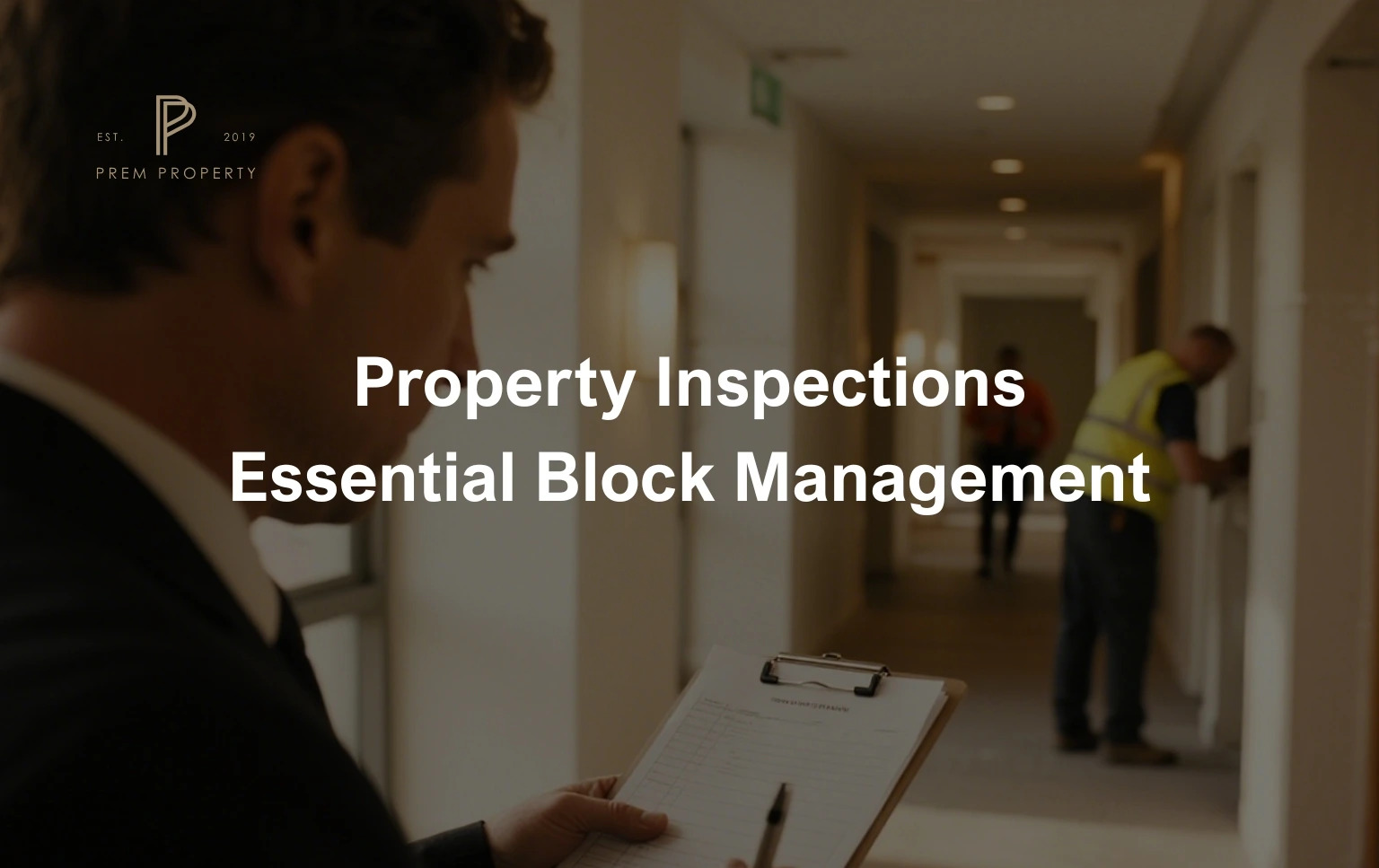Property inspections form the backbone of successful block management, yet many property managers overlook their crucial importance. Regular assessments not only protect your investment but also ensure residents enjoy safe, well-maintained living environments. Moreover, systematic inspections help identify potential problems before they escalate into costly repairs.
The UK block management industry demonstrates remarkable growth, with 22,751 property management services businesses operating as of 2023, representing a 3.3% increase from 2022. Furthermore, the sector is estimated to be worth over £3.5 billion in 2024, with a projected annual growth rate of 4.5%. This expansion underscores the increasing importance of professional property inspection practices across residential blocks.
Why Property Inspections Matter Most
Block managers who conduct thorough inspections consistently outperform those who adopt reactive approaches. Furthermore, regular assessments demonstrate professional competence whilst building trust with leaseholders and freeholders alike. Property inspections serve multiple purposes: they maintain safety standards, preserve property values and ensure regulatory compliance.
Professional property managers understand that prevention costs significantly less than cure. Consequently, they schedule comprehensive inspections throughout the year, addressing issues promptly rather than waiting for complaints. Additionally, systematic inspections provide valuable documentation that proves essential during insurance claims or legal proceedings.
Essential Areas Requiring Regular Assessment
Structural Elements
Building structures demand meticulous attention during property inspections. External walls, roofing systems, and foundations require careful examination for signs of deterioration or damage. Meanwhile, internal structural elements such as load-bearing walls and staircases need regular assessment to ensure ongoing safety.
Inspectors should particularly focus on water ingress, which causes extensive damage if left unaddressed. Similarly, structural movement or settlement requires immediate professional evaluation. These inspections become increasingly important as buildings age and weather conditions become more severe.
Mechanical and Electrical Systems
Heating, ventilation, and air conditioning systems require systematic evaluation to maintain optimal performance. Electrical installations, including communal lighting and fire alarm systems, demand regular testing to ensure safety and compliance. Furthermore, lift maintenance schedules must align with statutory requirements whilst addressing any operational concerns.
Property managers should establish relationships with qualified engineers who understand the specific requirements of residential blocks. Additionally, maintaining detailed service records proves invaluable during inspections and helps demonstrate due diligence to regulatory bodies.
Compliance and Legal Requirements
Since April 2024, significant changes to UK building regulations have strengthened inspection requirements across residential blocks. The Building Safety Regulator now oversees building control work in England and Wales, whilst registered building inspectors must complete formal registration to conduct assessments legally. These regulatory changes emphasise the critical importance of professional property inspections in maintaining compliance.
Recent government data reveals that local authorities have taken enforcement action under the Housing Act 2004 against 483 buildings over 11 metres with unsafe cladding, highlighting the consequences of inadequate inspection practices. Additionally, building safety remediation programmes demonstrate how proper inspections prevent costly compliance issues whilst protecting residents from safety risks.
Common Areas and Amenities Entrance halls, corridors and stairwells create first impressions for residents and visitors. Swimming pools, gymnasiums and garden areas also need regular assessment to ensure safety and functionality.
Communal facilities often experience heavy usage, making routine inspections essential for identifying wear and tear. Moreover, well-maintained common areas contribute significantly to property values and resident satisfaction levels.

Developing Effective Inspection Schedules
Daily Walk-Throughs
Experienced block managers conduct brief daily inspections of key areas, identifying immediate concerns and ensuring basic maintenance standards. These quick assessments help spot emerging problems whilst demonstrating active management to residents. Additionally, regular presence in communal areas provides opportunities for informal resident feedback.
Daily inspections should cover entrance areas, lift functionality, lighting systems, and general cleanliness standards. Furthermore, managers should check for any obvious safety hazards or security concerns that require immediate attention.
Weekly Comprehensive Reviews
Weekly inspections allow deeper examination of building systems and common areas. These assessments should include detailed checks of mechanical systems, external areas, and resident facilities. Meanwhile, property managers can use weekly reviews to update maintenance schedules and coordinate contractor visits.
Documentation becomes crucial during weekly inspections, with photographs and detailed notes supporting future decision-making. Similarly, trending analysis helps identify recurring issues that might indicate systemic problems requiring professional intervention.
Monthly Technical Assessments
Monthly inspections focus on technical systems and compliance requirements. Qualified professionals should examine heating systems, electrical installations, and safety equipment during these comprehensive assessments. Additionally, external contractors might conduct specialised inspections of lifts, fire systems and other critical infrastructure.
These monthly reviews provide opportunities to assess contractor performance whilst ensuring all statutory obligations are met. Furthermore, detailed technical reports help justify maintenance budgets and support long-term planning decisions.
Annual Comprehensive Surveys
Annual property inspections provide comprehensive building assessments that inform long-term maintenance strategies. Professional surveyors should examine structural elements, external fabric, and major building systems during these detailed reviews. Moreover, annual surveys help identify capital expenditure requirements and support reserve fund planning.
These comprehensive assessments often reveal issues invisible during routine inspections whilst providing valuable documentation for insurance purposes. Additionally, annual surveys help demonstrate professional management standards to leaseholders and regulatory bodies.
Technology’s Role in Modern Inspections
Digital Documentation Systems
Modern property managers increasingly utilise digital platforms for recording and managing inspection data. Tablet computers and smartphone applications enable real-time documentation whilst automatically uploading information to central databases. Consequently, managers can access historical data instantly and track maintenance trends effectively.
Digital systems also facilitate photograph and video documentation, providing clear evidence of building conditions over time. Furthermore, automated reporting features help generate professional inspection reports that satisfy regulatory requirements and support insurance claims.
Predictive Maintenance Technologies
Smart building systems now provide continuous monitoring of mechanical equipment, identifying potential failures before they occur. Similarly, moisture sensors can detect water ingress early, preventing extensive damage to building fabric. These technologies complement traditional inspections whilst providing valuable additional data.
Internet-connected sensors monitor temperature, humidity, and air quality in real-time, alerting managers to environmental conditions that might affect building performance. Additionally, predictive analytics help optimise maintenance schedules based on actual equipment performance rather than manufacturer recommendations alone.

Common Inspection Challenges
Access Difficulties
Gaining access to certain areas often presents significant challenges during property inspections. Flat roofs, plant rooms, and basement areas might require specialised equipment or safety precautions. Moreover, coordinating access with residents for inspections of leased areas requires careful planning and clear communication.
Professional property managers develop systematic approaches to access challenges, building relationships with specialist contractors and maintaining appropriate safety equipment. Additionally, clear access policies help ensure inspections proceed smoothly whilst respecting residents’ privacy rights.
Weather Dependencies
External inspections depend heavily on weather conditions, with high winds or heavy rain making comprehensive assessments dangerous or impossible. Consequently, managers must build flexibility into inspection schedules whilst ensuring critical safety checks continue regardless of conditions.
Indoor inspections can proceed during adverse weather, focusing on internal systems and communal areas. Meanwhile, external assessments should resume as soon as conditions permit, ensuring no critical issues remain unaddressed.
Maximising Inspection Value
Staff Training Requirements
Property management teams require comprehensive training to conduct effective inspections and recognise potential problems. Regular training updates ensure staff remain current with building regulations, safety requirements, and best practice standards. Furthermore, specialised training helps staff identify issues requiring professional intervention.
Investment in staff development ultimately reduces inspection costs whilst improving problem identification rates. Additionally, well-trained teams provide better service to residents and demonstrate professional competence to all stakeholders.
Building Strong Contractor Networks
Successful property managers cultivate relationships with reliable contractors who understand residential block requirements. These partnerships ensure rapid response to urgent issues whilst providing competitive pricing for routine maintenance work. Moreover, trusted contractors often identify additional concerns during routine service visits.
Regular contractor performance reviews help maintain service standards whilst identifying opportunities for improvement. Similarly, clear service specifications ensure consistent quality across all maintenance activities and support effective cost control.
Property inspections remain fundamental to successful block management, protecting investments whilst ensuring resident safety and satisfaction. Through systematic approaches, appropriate technology, and professional expertise, property managers can maximise inspection effectiveness whilst controlling costs and demonstrating value to all stakeholders.

